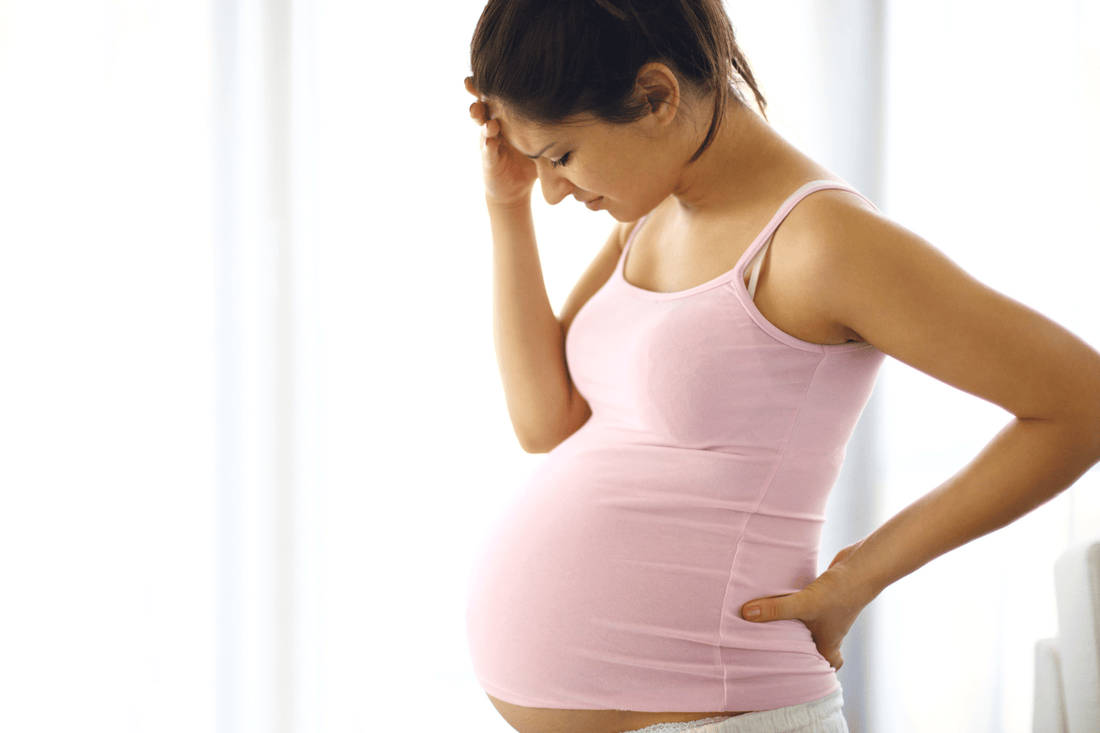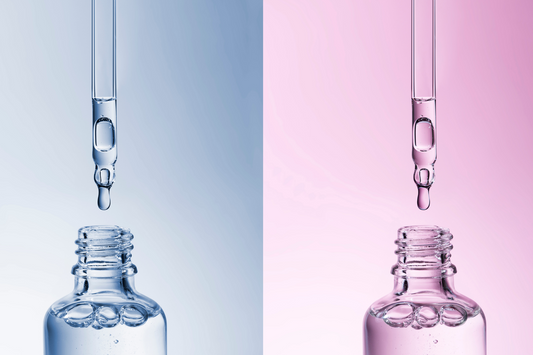If you are a mom experiencing hair loss during pregnancy, know that you are not alone. While it can seem concerning to be losing your hair while in such a fragile state and during such a difficult time, it is normal and one of the many changes your body goes through during this time. Learn more about why your hair is susceptible to falling out during pregnancy below.
What Is Hair Made Of?
The first thing you should understand is what exactly hair is made of and where it comes from. You should note that all of the hair on your body - whether it is the hair from your leg, arm, and so forth, all is composed and rises out of your skin and scalp in the same way.
On your scalp, the hair begins to form at the root. The root is inside a follicle - a tube-like structure in the epidermis, the skin’s outermost layer. Underneath your roots, your hair is made up of cells bonded together to form a protein called keratin. From there, as your hair begins to grow, shafts of hair will emerge upward from the dividing cells of the hair matrix, which shares the foundation of the follicle with dermal papilla cells inside the hair bulb.
The Hair Growth Cycle
We've discussed before in previous blogs, but let's quickly recap. The hair growth cycle are the phases in which your hair grows, sheds, and a new hair grows in. It can be broken down into 4 main phases:
- Anagen Phase. The anagen phase is the 1st phase, which is also known as the active growth phase of the hair growth cycle.
- Catagen Phase. The catagen phase follows and is known as the transitional phase where growth stops and your follicles begin to shrink.
- Telogen Phase. The telogen phase is next and is considered the resting phase. This phase accounts for the majority of your hair growth cycle, whereby your hair follicle is at rest and the hair has fully formed.
- Exogen Phase. Finally, the exogen phase is the last phase in which the hair officially sheds - and thus, the cycle begins all over again.
How Hormones Affect Hair Growth During Pregnancy
As we mentioned above your hair normally goes through 4 main stages during growth, but during pregnancy, this hair growth cycle (and many other things) can change.
Many women experience their hair feeling thicker after the first trimester of pregnancy due to an increase of estrogen; this increase in estrogen causes the hair strand to stay in the catagen (growing) phase longer.
This, of course, also means women can experience hair loss during pregnancy due to a similar reason of a decrease in estrogen! This can happen at different stages from the pregnancy such as post-partum, experiencing a miscarriage, stopping contraceptives, and so forth. All of these events can result in hair loss due to a decrease, or result of estrogen returning back to normal levels after pregnancy. This is completely normal.
Hair Care During or After Pregnancy
Since your body is going through so many significant changes during this time, we recommend nourishing yourself from head-to-toe to ensure your physical and mental wellbeing is in good condition. This can start with your hair, especially if you are noticing hair shedding at any point. We also recommend consulting with your health care provider during appointments if you notice this hair loss as they can help ensure you have a proper hormonal balance. Here is a list of things you can do to give your hair extra care during pregnancy:
- Use shampoos and conditioners that are silicone and paraben-free
- Avoid putting your hair into very tight ponytails, braids or buns which can pull on your hairline and pull out hair
- Consume foods that are full of Vitamin E, Vitamin C, Fatty Acids, and Zinc
- Avoid styling or combing through your hair when it is wet
- Consider using a hair strengthening product, such as Revela
- If using heated hair tools, use sparingly and use a hair protectant
So is it Normal to Lose Hair During Pregnancy?
If you're experiencing hair loss, it's important to get to the root of what is causing your symptoms. Pregnancy is just one of the many causes of hair loss. Whether your hair loss is due to hormonal causes or genetics, it can be managed through different remedies and methods. It is most important to think about your current well-being and to understand your medical history, while you reflect on recent psychological or physical stressors. You should speak with a healthcare professional if you believe your hair loss is extreme, especially during or after pregnancy.





